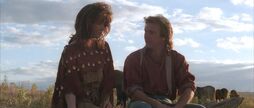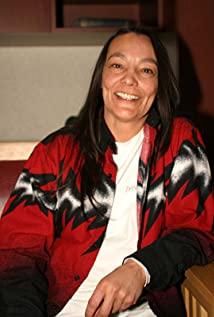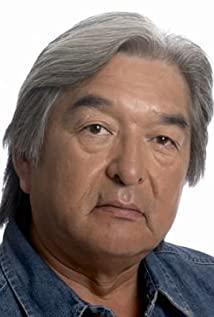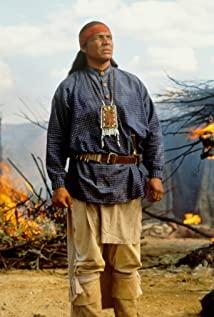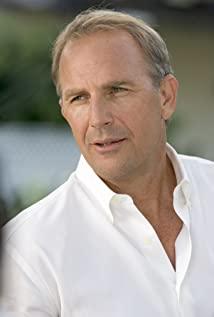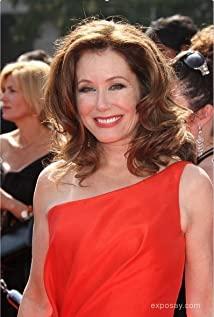The film uses a linear narrative, using Lieutenant Dunbar's diary as a clue to connect the sequence of events. The protagonist's narrative language is eloquent and full of sense of substitution. Every audience is like Dunbar, following him when he first arrived. This place, seeing the Sioux for the first time, getting acquainted with them, and the confusion about the unknown development ahead, combined with the soft or hasty symphony, created a tragic atmosphere for the film.
Binary opposition can be seen everywhere in the film. The director cleverly uses contradictions to create conflicts, so that the plot is relaxed and relaxed, accompanied by a symphony with tight rhythm and dense drums, which arouses the emotional tension of the audience and makes them curious about how the next plot will develop. , which is why the film is nearly four hours long without feeling lengthy.
The first opposing contradiction is the conflict between civilization and nature. When the protagonist, Lieutenant Dunbar, found a dead deer in the river when he first arrived at the western outpost in Seckwick, he said that "the animals in the water are not poisoned, but Was shot to death, but why? Shooting sports? For venting anger? My first thought was that the people here were too hungry to eat it, but no way, the meat was all rotten.… Maybe they were afraid, maybe there was a rebellion here, I can't find any clues if I stay here, maybe the reinforcements will come to find the answer." Lieutenant Dunbar, who had just arrived here, was very concerned about the reinforcements due to his previous environment and his position. Looking forward, they still treat them as companions. However, his doubts and confusion about the cruelty to animals showed that he was different from other white soldiers, which paved the way for his subsequent contacts with the Sioux.
When his relationship with the Sioux turned for the better, it coincided with the slaughter of wild bulls. The panoramic view from above showed the bloody carcasses of wild bulls on the endless grassland. Dunbar sat on the back of a horse and his eyes were dull . The evidence on the ground has proved...that kind of person is a person who tramples on the rights of the Sioux with no standards of value and soul. The traces of the carriage leaving me have some doubts...My heart sank, because I know that it can only be done. It is the white hunter who kills these creatures only for their tongues and furs." Bison was an important traditional food for the Indians, but in order to obtain high economic value hides and delicious bison tongues, a large number of whites carried out large-scale activities on bison. Hunting and killing caused bison to be on the verge of extinction for a time, and the mass death of bison also objectively led to the decline of Indians in the American continent. At this time, Dunbar was different from when he first arrived, and he began to question and dislike the behavior of white people.
The second opposite contradiction is the conflict between the whites and the Indians. When the first wind emanated and ran to Dunbar's camp, Dunbar angrily drove him away and buried the excess arms "so as not to fall into the In the hands of the enemy", "Once they come, they will look good" .
When he rescued a white girl among the Sioux, the relationship between the two parties took a turn for the better. The Sioux began to visit Dunbar's camp frequently, and Dunbar also enthusiastically gave them food and daily necessities from the white people. The icebergs between them gradually melted, and the distance between them was getting closer. Dunbar wrote in his diary: "None of what I have heard about these people is true, they are not beggars, thieves, they are not abominable monsters, I have understood them... The real communication comes very slowly, absolutely Most of the progress has been based on failures...there have been exciting breakthroughs with the Indians, and we are all eager to get to know each other."
In the film, Dunbar expressed his loneliness more than once in his diary. He was stationed on the frontier alone, with only a horse and a wolf to accompany him. The sincere friendship of the Sioux made him feel a sense of belonging and the company of friends. It made him feel a kind of warmth far away in the frontier, and the Sioux tribe gradually became his "home". As he fights with the Sioux to stock up on winter food, he looks at the sight and thinks, "I've never felt more proud, I've never really known who Dunbar is, and maybe the name itself doesn't mean anything, But when I heard my Sioux name being called up again and again, for the first time I really knew who I was." If Dunbar only regarded the Sioux as friends in the early days, then he now regards himself as A member of the Sioux, as Ten Bears said, the white Dunbar is gone, replaced by a Sioux named "Dancing With Wolves".
The former Dunbar was confused by the contradiction between whites and Indians. He neither agreed with the actions of whites, nor could he empathize with Indians killing whites. There seems to be a gap between him and both cultures, he doesn't know which side he belongs to, and I think that's one of the reasons why he feels lonely. He'd been avoiding the bird-kicking question, even prevaricates with the white man's answer that he was just passing by, hiding that they would one day flock to it.
When he decided to marry Fist Standing, it was the moment when he made up his mind to be part of the Sioux. But I personally think that the plot development after this is a little bit wrong with the handling of the contradictions, after a Sioux vs. white battle at the end of the film, Dunbar said: "It's a good thing to kill some soldiers by the river, kill these It doesn't matter who it is, I like to do it . " Even if the director wants to use an individual perspective to reconstruct the history of the westward movement, showing his yearning and longing for peaceful coexistence between people of different nationalities, the essence of history cannot be rewritten. The white people and the Sioux have never been friendly to each other. The previous intimate exchanges were only carried out by Dunbar in his personal capacity. He could not alleviate the contradiction between the two peoples by himself, just as the director could not express it only from a personal perspective. A scene of friendly coexistence between the two ethnic groups. Only the individual Dunbar and the Sioux people live together peacefully. So when Dunbar was at odds with the group he belonged to, and the only solution to the conflict was that he had to betray one side and join the other, he chose to defect from the white camp. At this moment, his words and deeds did not show any sign of peaceful coexistence. He just completed the transformation from a white man to a Sioux.
Of course, the emotional transformation between Dunbar and the mysterious Sioux is very moving. The development of this emotional line satisfies people's subconscious spirit of adventure and exploration. At the end of the film, the wind flutters and shouts "Do you consider me your friend? Can you always consider me your friend?", but Dunbar frowned and didn't answer, only seeing him riding a horse Going farther and farther, maybe no one can answer this question. After all, the word forever is full of too many unknowns, especially for them who have an elusive fate.
���tqzd
View more about Dances with Wolves reviews




